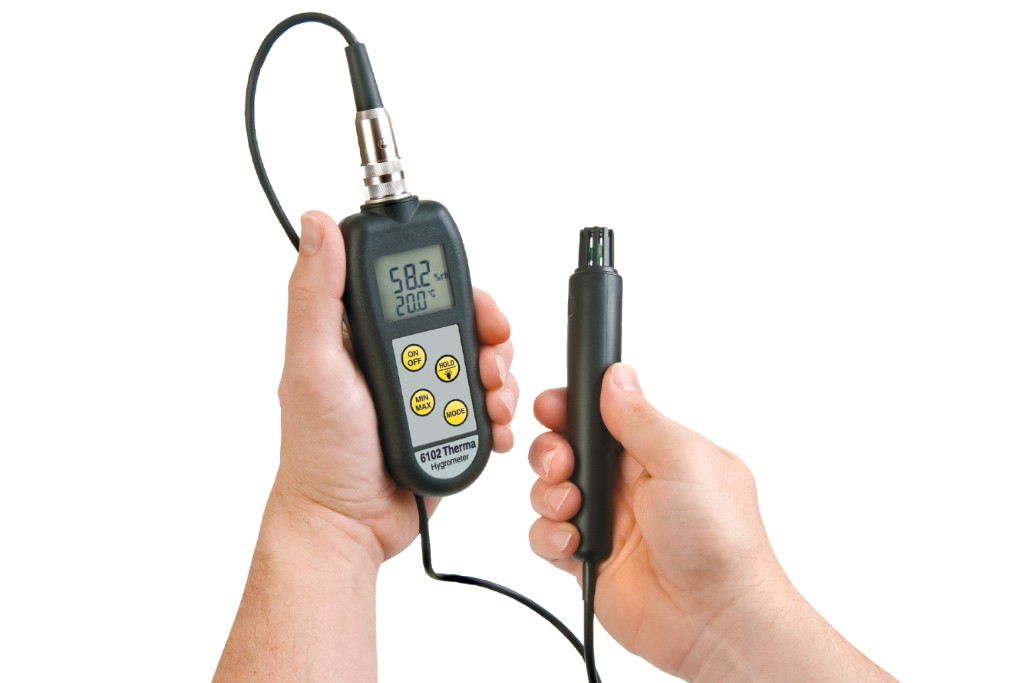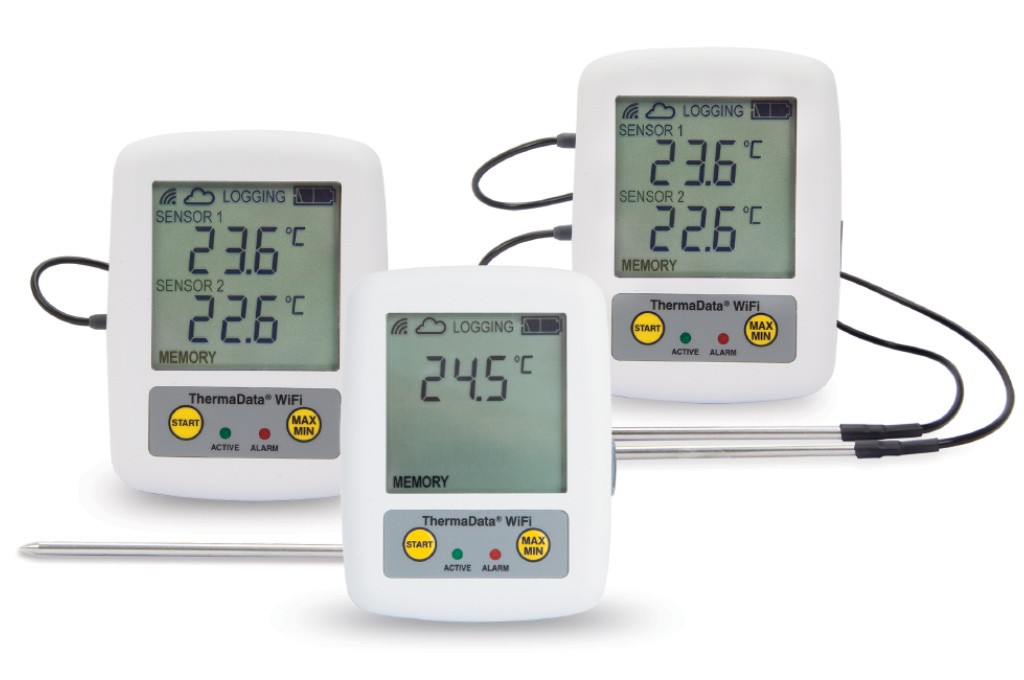How Technology Can Help Meet Modern Milling Demands

With Covid-19 advancing technologies for all types of business, mills don’t need to fall behind. Utilising ETI wireless data loggers, live recording of temperature, humidity, and even social distancing can be measured. Keeping the mills operating to full capacity and the people that work there safe.
Increasing Demand
The milling industry has pushed onwards throughout the pandemic. The produce of goods have been maintained to meet quotas and standards. Covid-19 has seen a demand in flour like nothing before. UK’s millers produced flour for home baking at full capacity, doubling their output from two million 1.5kg bags a week to four million . Yet, this still wasn’t enough to meet heightened demands. The value of flour has risen by almost 115%, becoming more like gold dust than just an ingredient to bake with.
With almost half the UK population spending more time baking, millers have continued to produce excessive amounts of flour, as well as other goods. However, if a batch spoils because of humidity in the air or incorrect temperature, this could create a negative ripple effect throughout communities. The use of advanced technologies in operations has increased by 25% , as millers look to ensure any mistakes are eradicated, and wasteful time is spared.
Benefiting from Technology
Wireless data loggers can provide mills with the information they need to act immediately should any unforeseen issues arise. These data loggers transmit data via the cloud which is stored locally on PCs and other devices. The data is then passed through a WIFI router or Bluetooth to a computer regardless of where the user is based at that particular time. The data then stays locally on a hard drive so millers can access real, live temperature monitoring data wherever they are. This ensures checks are completed correctly, issues are identified, and corrective actions are taken to reduce spoilage.
With an increase in demand comes an increase in risk if something goes wrong. Millers will need up to date information to prevent delays in production. Most cloud servers have the ability to set up email and SMS alerts, this can be really important for accurate results. Data loggers can immediately pick up anything abnormal or something that warrants further investigation, giving millers the chance to act fast. This is extremely useful If mills are suddenly overwhelmed with high demand. Producing more of any produce can affect the temperature and even humidity of a mill, allowing bacteria to flourish even if you think you have the right temperature set on the dial. To combat against this issue, millers can use wireless data loggers to back temperature recordings every few hours so that it doesn’t go above critical limits. Monitoring both air and core temperature within the mill and ensuring they’re always one step ahead. Additionally, If anything being produced is fresh, wireless data loggers provide an accurate record of temperature during the life-cycle of a product, ensuring the very best in quality.
Wi-Fi and Bluetooth are two aspects of broadband tech that we use every day in our social life. Mills are no different. Wireless data loggers use Wi-Fi to accurately record the temperature of appliances and buildings, with each data logger transmitting the recorded data to a Wi-Fi router which is connected to the internet. From there, data can be remotely accessed and viewed from a PC, laptop or tablet anywhere in the world. When using Bluetooth, data is transmitted to your Android or iOS via a secure connection, a simple and effortless process. Wireless data loggers have been specifically designed to eliminate the need for wires and connectors, allowing for better flexibility and less potential hazards.

Save Time, Save Money
It’s important to look for cost efficiencies. In flour mills, machinery can vary between £2,000 to £5,000 , perhaps even more in some cases. This doesn’t include the costs of running a mill and the other expenses that come with it. One of the most expensive overheads is employees’ salaries. Therefore, with wireless data loggers transmitting live data via the cloud, millers are able to save tremendous amounts of time and money, specifying their attention to other places.
Let’s say it requires one person to perform five different temperature checks three times a day. This is approximately 73 hours of labour annually, which based on minimum wage comes in at around £636. ETI’s wireless data loggers provide a more specific and updated analyse for less than £30. Implementing this technology into mills can save around £600 a year as well as free up so much more time. Now think about the 73 hours spared. This can be weeks’ worth of time dedicated to more fundamental work that can help improve the flow of an operation and betterment the mill as a whole. It’s like adding an extra few working days to the year.
Hygiene and Safety
Two of the most important words surrounding milling is ‘hygiene’ and ‘safety’. Hygiene is fundamental in the food industry. When working in mills (even before the pandemic) safety has always been the number one priority. ETI manufacture humidity metres with hygrometers and therma-hygrometers. In milling processes, the measurement of humidity (%rh) is very important, as produces are sensitive to variations in humidity. Therefore, humidity needs to be measured and controlled so products keep their quality and mills maintain their high performance.
A hygrometer is an instrument used to measure the quantity of water vapour present in the air. Hygrometers can measure relative humidity over the range of 0 to 100 %rh but in most instruments, this range may be more limited depending on the sensor type. If a mill is too damp and the humidity level is too high at above 70%rh, not only does mould develop but it can encourage dust mites to breed. Conversely, if the humidity level is too low at below 25%rh, it can cause respiratory discomfort.
Combining this with wireless data loggers, millers can receive immediate data on the humidity and toxicity within the air, preventing the risk of contaminating any produce before an entire batch is spoiled. As well as mills that produce food, even mills that manufacture paper or metals can benefit massively from an accurate analyse in humidity. Moisture prompts the growth and spread of microorganisms, even in areas considered clean, as well as decreasing product quality, and causing metals to corrode. Mills can utilise technology to prevent these issues.
With Covid-19 in mind, wireless data loggers also support social distancing by reducing the number of people involved in the temperature monitoring process. Limiting human contact and operating within the legal restrictions of two metres apart. This provides a further benefit, by using data loggers we can eliminate the risk of human errors and free up time, sanctioning millers to work on other tasks instead of dedicating hours on something that could be done in seconds.
Preparing for the Future
The UK has a roadmap out of lockdown. In the not-so-distant future, hospitality sectors such as restaurants, pubs, and bars will re-open. Nothing but the very best produce from millers will be in demand. Technology can ensure both money and time is saved. Wireless data loggers can help mills stay hygienic, accurately monitor temperature, and keep their workers safe.
We’re all excited about returning to a way of life pre-pandemic. Yet, this new normality won’t be the same one we previously had. Hygienic values will be more important, with newly sharpened attitudes towards safety here to stay. While the pandemic has placed extra demands on businesses up and down the food value chain, they can be overcome through rigorous quality assurance and the confidence when investing in technology.
Article originally featured in the April 2021 issue of Milling and Grain magazine.